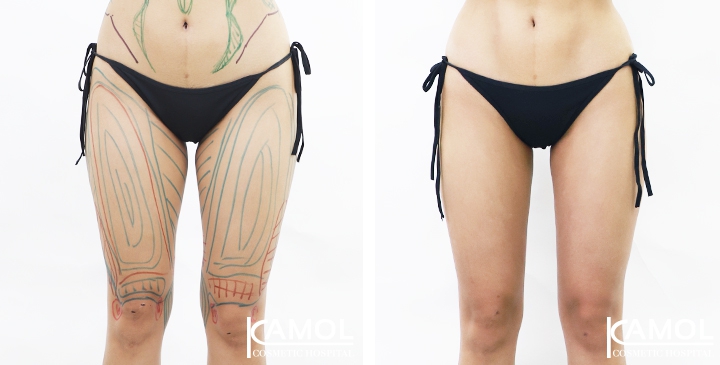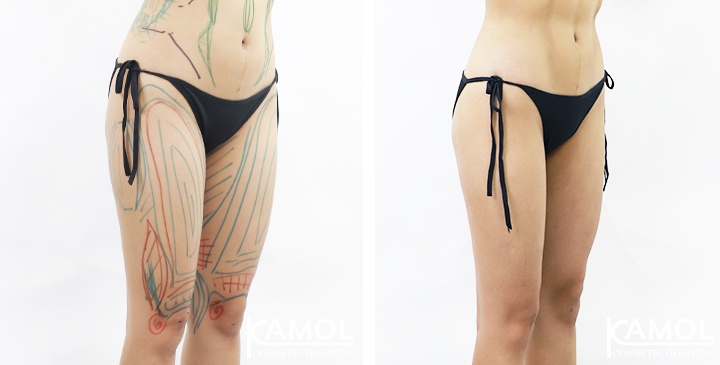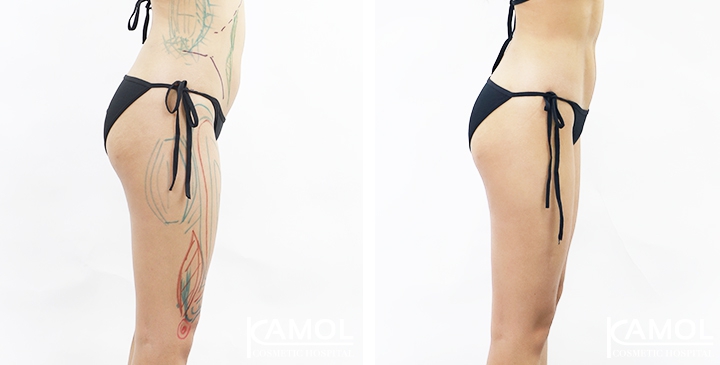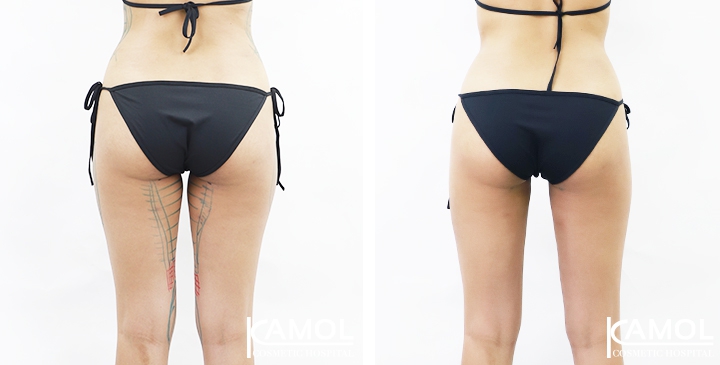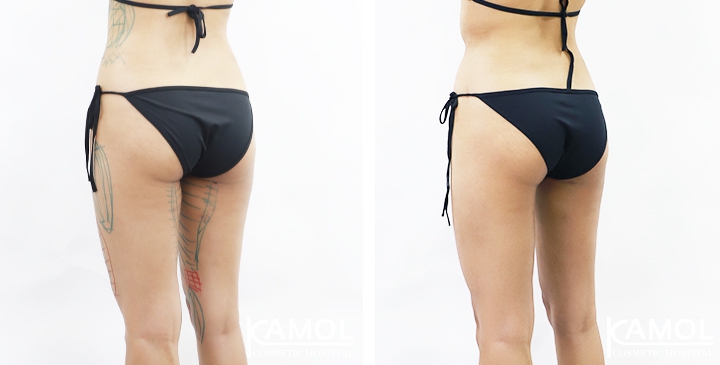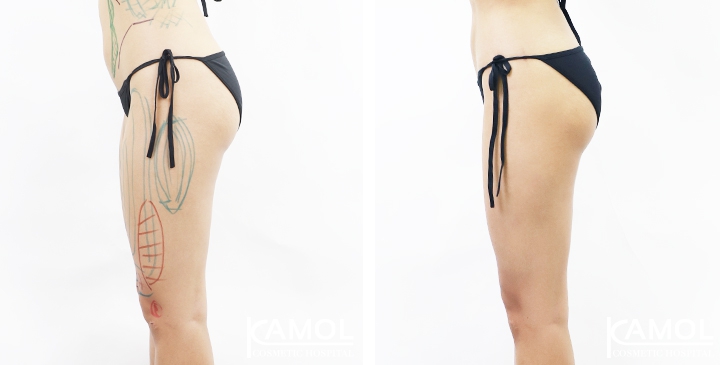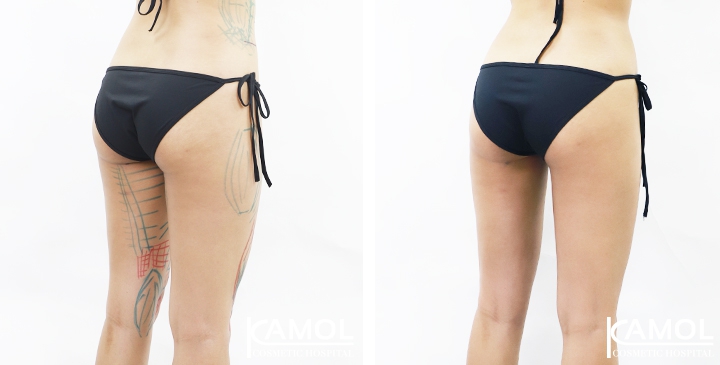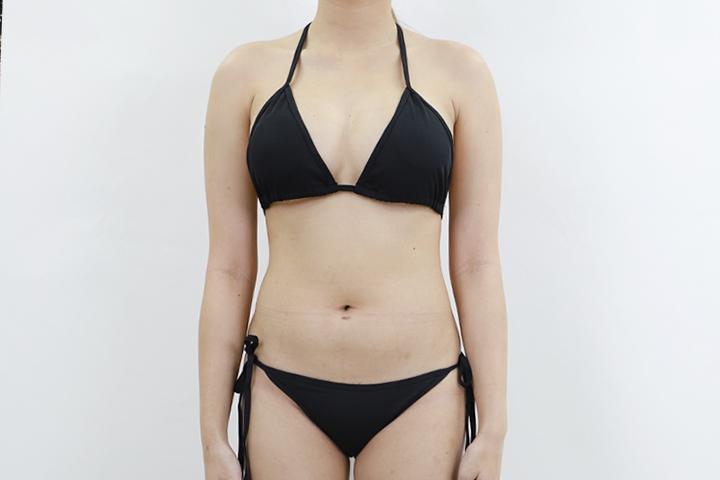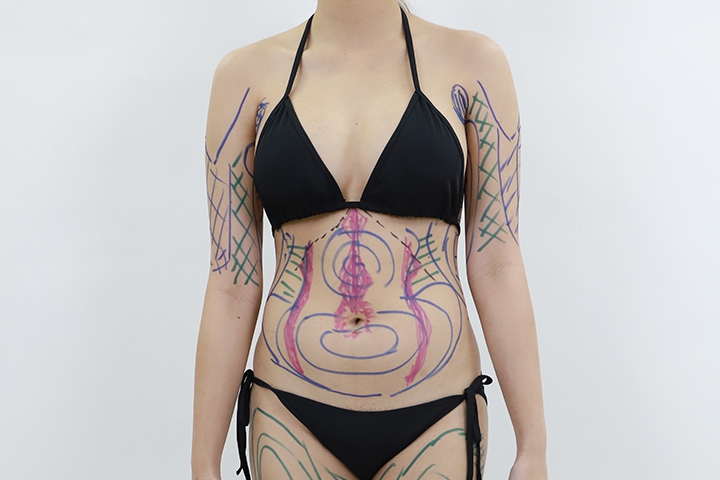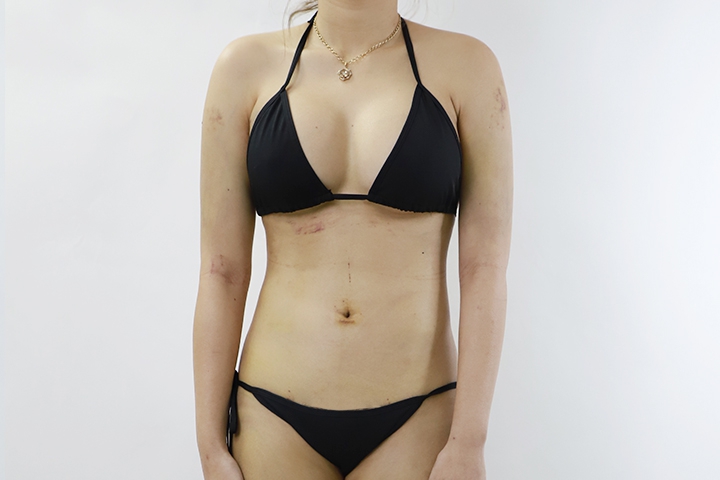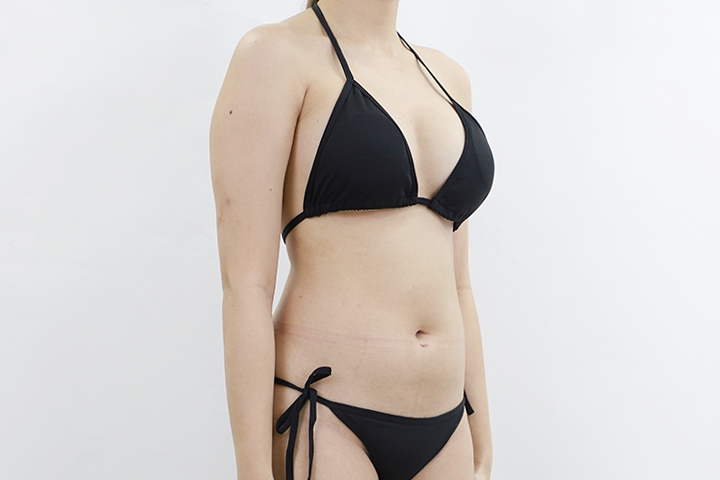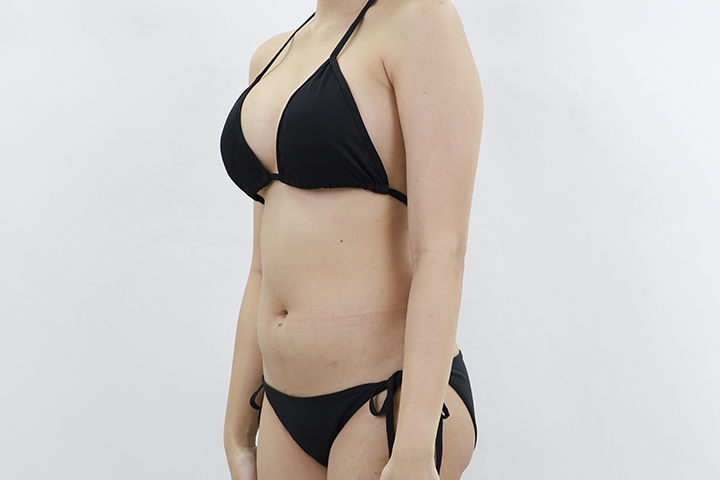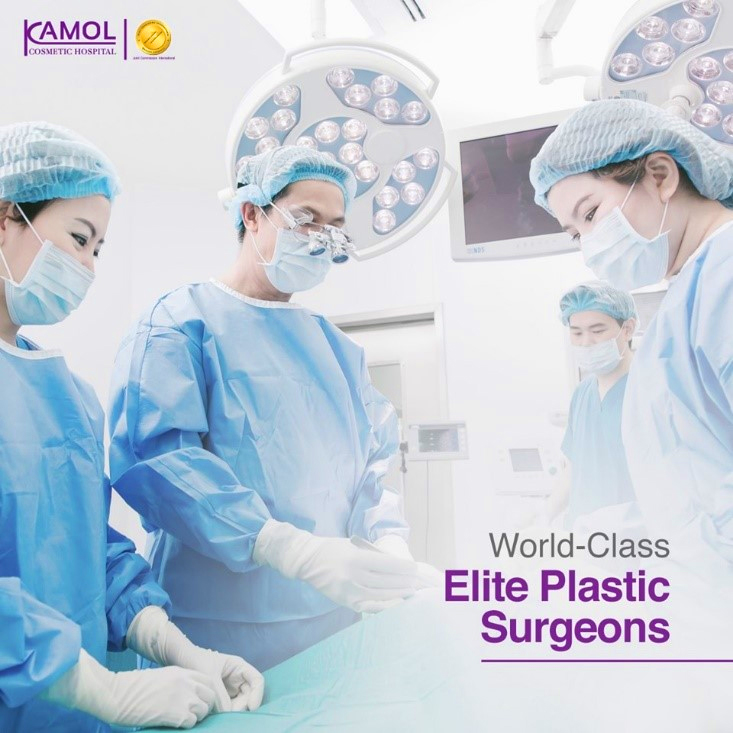Liposuction in Bangkok, Thailand
Liposuction is a surgical procedure to remove fat from the fat layer in some areas such as the abdomen, arms, thighs, back, buttock, and face to improve their shape. Liposuction can be done with other cosmetic procedures like a facelift, breast reduction, buttock lift, or tummy tuck.
Liposuction is not a weight reducing procedure. This surgery will remove some of the fat beneath your skin, but it will not remove the fat inside your abdomen.
Liposuction technology:
There are a few different liposuction techniques depend on the technology of the liposuction machine. The basic of the liposuction machine has a variety of suction tubes called "cannula" that is connected to the vacuum machine. Kamol Cosmetic Hospital offers variety liposuction technologies are as follows;
1. Power Assisted liposuction (PAL):
PAL (Power-Assisted Liposuction) is a machine using a liposuction cannula that rapidly vibrates to help break up fatty tissue as it removed from the body. It allows for a slightly more gentle technique than traditional liposuction, which is especially helpful in dense adipose tissue areas.
PAL Benefits:
Doctors do not need to use as much force during power-assisted liposuction because the vibrating cannula helps release fat cells from the body. In a study led by the Department of Dermatology at Tulane University Health Sciences Center, researchers found that 30 percent more fat was removed with PAL than with manual liposuction while bruising and recovery time was significantly reduced. This technique makes PAL useful for treating areas but not suitable sculpting, including the inner thighs, belly button area, and male breasts. Because the power-assisted liposuction procedure takes less time to perform than manual liposuction, patients are less susceptible to complications and safety risks. Patients report many long-term benefits of fat removal with liposuction.
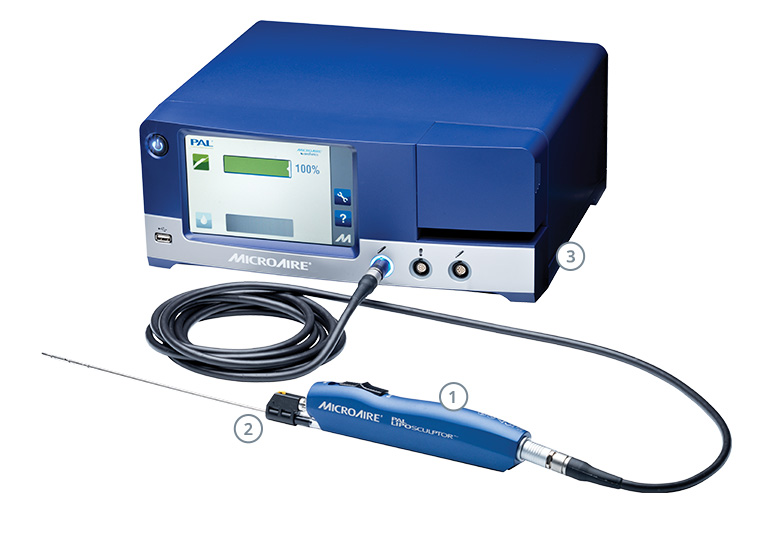
Picture 1 shows the PAL® Liposuction System.
(https://www.microaire.com/products/pal-system/)
2. Liposuction with VASER ® :
Vaser® is a liposuction machine using ultrasound to emulsify fat before being removed with suction.
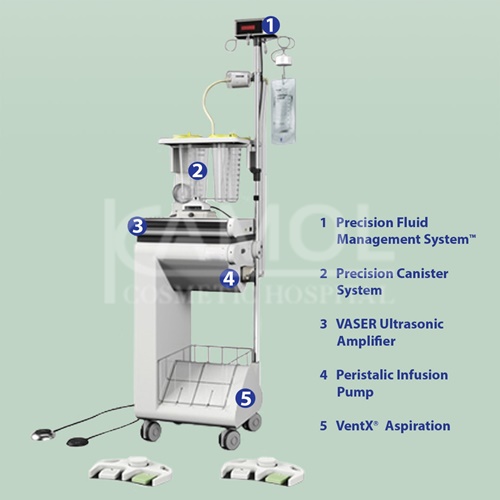
Picture 2 shows the VASER ® Liposuction System
3. Another technology for liposuction
laser lipo or smart lipo is a laser lipolysis machine using a laser to emulsify fat and remove it by suction. Smartlipo can produce some skin tightening from the laser. Radiofrequency assisted liposuction (RFAL) using radiofrequency to melt the fat and removed out by vacuum.
Liposuction can be done under general and local anesthesia, depending on the amount of fat needed to remove. It is an effective way to eliminate or reduce unwanted fat. The areas that can treat with liposuction include:
- Thigh
- Buttock
- Hips
- Abdomen
- Neck and jowls
- Arms
- Back
- Waists
- Calves
A good candidate for liposuction
- Adults within 30% of their ideal weight who have firm, elastic skin, and right muscle tone
- Healthy
- Nonsmokers
- A realistic expectation for body contouring
- A person who has firm, elastic skin, and right muscle tone
Preparation for liposuction:
- Consult with the surgeon about your goal, then physical examination, lab test chest x-ray,and adjust your current medication to confirm you are available to surgery.
- Stop smoking
- Avoid taking aspirin, anti-inflammatory drugs, and herbal supplements as they can increase bleeding
Procedure for liposuction
- Step for anesthesia, we offer sedation or general anesthesia.
- After anesthesia, the incision will be around 1 cm. The number of incisions depends on the number of areas being operated. A tumescent solution will be put in the operational areas. Traditional liposuction utilizes a hollow tube to remove the fat, and the Laser and Ultrasonic Technique use a laser or ultrasonic energy to dissolve that fat before it removes.
- Close the incision by suture.
Post Liposuction care:
- It is usual for bloody fluid to drain on clothes and sheets for the first 24 to 72 hours after surgery. The liquid is put into the area before liposuction to make fat removal safest for you.
- A compression garment should wear at all times except during showering. Compression garments reduce swelling and speed up your recovery. Your plastic surgeon will let you know when you can stop wearing the compression garment.
- Try to resume your routine activities at home. The light activities will also help to keep fluids moving in the body and reduce swelling.
- You can shower 24-48 hours after surgery, but you need to put the garment back on which may be difficult, make sure you have someone to help you. When you shower, you can run soap and water over the areas without scrubbing. The surgical area should be gently dried with a clean towel.
- Avoid still (non-running) water for two weeks after surgery. Don't allow the wound to be wet, including baths, swimming pools, hot tubs, lakes, oceans, etc.
- Postoperative massage to remove the seroma to the lymphatic system
- Routine activity is not prohibited.
- Exercise should start at around two weeks.
- Follow up all appointments.
- Take stitches off for seven days after surgery.
Most common complications found in the postoperative:
Early complications
- Seroma Treatment: Seromas treatment is medical competence
- Drainage with a syringe,
- Placement of drain,
- Placement of substances like tetracycline to induce sclerosis,
- Revisional surgery to remove the seroma capsule
- Drainage with a syringe,
- Thromboembolism: The Pulmonary Thromboembolism ( PTE ) is aclinical-pathological situation triggered by the pulmonary artery obstruction. It is a defect of oxygen in the lungs. Important to keep track of a patient's vital signs as well as oxygen saturation.
- Infection: It is detected by fever, chills, pain.
- Anemia: Happens in these cases by loss of blood combined with liposuction fat.
- Hematoma: a collection of blood, caused by broken blood vessels.
- Fat embolism: the blockage of a blood vessel by an embolus fat.
- Laceration of the skin
Late complications:
- Fibrosis: the thickening and scarring of tissue
- Cellulite
- Deformities
- Asymmetries
- Poor healing
Before & After Liposuction
Reviews
Liposuction: Contour Your Shape and Boost Your Confidence.
Liposuction, also known as lipoplasty, is a cosmetic procedure that is designed to remove unwanted fat from specific areas of the body. It is a popular procedure for individuals who are looking to contour their shape and boost their confidence.
The procedure is performed under general anesthesia and typically involves making small incisions in the targeted areas. A thin tube, called a cannula, is then inserted through the incisions and used to suction out the unwanted fat. Liposuction can be performed on a variety of areas of the body, including the stomach, hips, thighs, buttocks, arms, and neck.
One of the main benefits of liposuction is that it can help to contour the body and create a more attractive shape. This can be particularly beneficial for individuals who are unhappy with certain areas of their body, such as a "muffin top" or "saddlebags." Liposuction can also help to boost confidence, as individuals may feel more comfortable and self-assured in their appearance, it can also be used in combination with other cosmetic procedures, such as a tummy tuck or breast reduction. This can help to further enhance the overall results and provide a more comprehensive transformation.
Does Liposuction have side effects, and what are they?
Yes, liposuction does have some potential side effects. Some of the most common side effects include:
- Bruising and swelling: Bruising and swelling are common after liposuction, as the body heals from the incisions and the removal of fat. These side effects should subside within a few weeks.
- Pain and discomfort: Some individuals may experience pain and discomfort in the treated areas, which can usually be managed with over-the-counter pain medications.
- Numbness and tingling: Numbness and tingling are common after liposuction, as the nerves in the treated areas may be temporarily damaged. This side effect should resolve on its own within a few weeks.
- Infection: As with any surgical procedure, there is a risk of infection. This risk can be minimized by following the surgeon's instructions for post-operative care and by keeping the incision sites clean.
- Asymmetry: In some cases, the results of liposuction may not be symmetrical and might not be as per the expectation.
- Changes in skin sensation: Some individuals may experience changes in skin sensation, such as itching or burning, in the treated areas. This side effect is usually temporary and should resolve on its own.
- Reaccumulation of fat: Liposuction is not a weight loss procedure and if the patient doesn't maintain a healthy lifestyle, the fat can reaccumulate in the treated areas.
It's important to keep in mind that these side effects are typically temporary and will resolve on their own over time. It's also important to follow your surgeon's post-operative care instructions to minimize the risk of complications and to ensure optimal healing.


